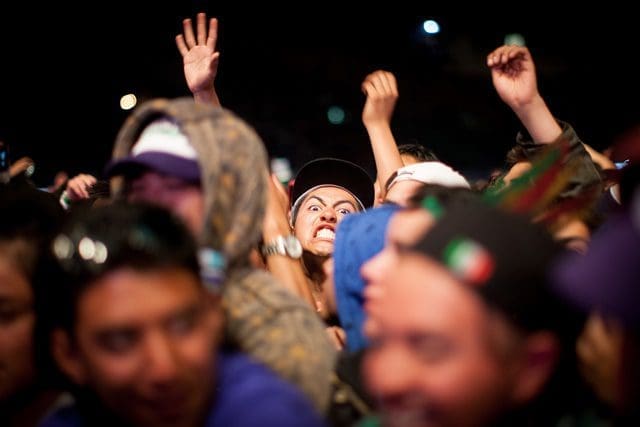Hundreds of Mexico City residents took to the streets of the affluent Condesa neighborhood on US Independence Day, voicing anger over soaring rents and the mass displacement of local families by foreign newcomers.
What started as a peaceful demonstration quickly escalated when some protesters smashed shop windows and chanted “Fuera Gringo!” targeting the growing population of American and European residents. President Claudia Sheinbaum condemned the violence as xenophobic while acknowledging that gentrification concerns are legitimate.
The Condesa district has become ground zero for Mexico City’s housing crisis. Nearly 20 percent of homes in the area now serve as short-term rentals or tourist accommodations, according to local estimates. Activists blame unchecked real estate speculation and platforms like Airbnb for pricing out longtime residents.
Erika Aguilar’s story illustrates the human cost of this transformation. Her family called the historic Prim Building in La Juárez district home for almost 50 years before facing eviction in 2017. Developers demanded 53 million pesos within two weeks for families to retain their units. Today, that same building houses luxury apartments marketed to short-term tenants, with rents often quoted in US dollars.
Displaced families like the Aguilars now live hours away from central Mexico City. Researcher Sergio González estimates more than 4,000 families have been pushed out of La Juárez alone over the past decade. He describes the situation as an “urban war” over land rights and access to the city center.
Mayor Clara Brugada recently announced a 14-point plan aimed at regulating rents, strengthening tenant protections, and expanding affordable housing. Critics argue these measures arrive too late and point to government policies that have prioritized tourism revenue over resident welfare.
The irony isn’t lost on protesters that Sheinbaum, while serving as mayor in 2022, signed a partnership with Airbnb to attract digital nomads to the city. Many activists believe this agreement accelerated the very displacement now sparking street demonstrations.
Foreign residents like Richard and Alexis Alsobrooks from Portland acknowledge the dollar’s purchasing power makes Mexico City attractive. They stress the importance of learning Spanish and contributing to local tax revenue. Yet their presence represents broader economic forces reshaping entire neighborhoods.
For Aguilar, the anger extends beyond individual newcomers. She recognizes the economic incentives driving change but laments that tourism benefits rarely reach working-class families like hers. The transformation of Condesa’s tree-lined streets into spaces filled with English-language cafes and co-working hubs signals more than neighborhood change to longtime residents.
As Mexico City grapples with balancing economic growth and housing accessibility, the tensions that erupted on Independence Day reflect deeper questions about who gets to call the capital home. The fight over gentrification shows no signs of cooling down.
Source: newsghana.com.gh











